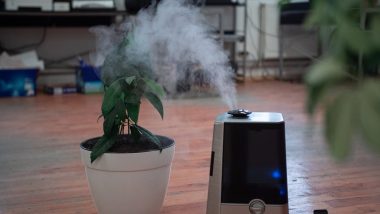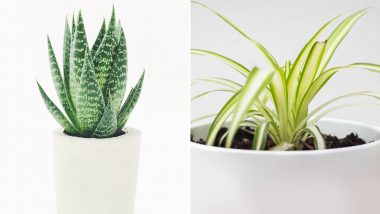Researchers have genetically modified a common indoor plant -- pothos ivy -- to remove pollutants inside the house including chloroform and benzene that have been linked to cancer, according to a new study. The modified plants express a protein, called P450 2E1 or 2E1, that transforms these compounds into molecules that the plants can then use to support their own growth. "People have not really been talking about these hazardous organic compounds in homes, and I think that is because we could not do anything about them," said Stuart Strand, Professor at the University of Washington. How to Reduce Indoor Toxicity This Winter? Expert Suggest Five Easy Ways to Improve Indoor Air Quality.
For the study, the team tested how well their modified plants could remove the pollutants from air compared to normal pothos ivy. They put both types of plants in glass tubes and then added either benzene or chloroform gas into each tube. Over 11 days, they tracked how the concentration of each pollutant changed in each tube. Findings, published in Environmental Science and Technology, showed that for the unmodified plants, the concentration of either gas did not change over time. However, for the modified plants, the concentration of chloroform dropped by 82 per cent after three days, and it was almost undetectable by day six. Tulsi, Aloe Vera and Other Best Plants with Health Benefits to Grow at Home.
In addition, the concentration of benzene also decreased in the modified plant vials by about 75 per cent. "If you had a plant growing in the corner of a room, it will have some effect in that room. But without airflow, it will take a long time for a molecule on the other end of the house to reach the plant," Strand noted.
(The above story first appeared on LatestLY on Dec 21, 2018 01:24 PM IST. For more news and updates on politics, world, sports, entertainment and lifestyle, log on to our website latestly.com).













 Quickly
Quickly





















